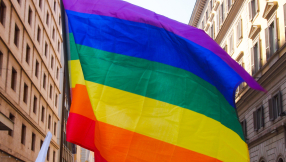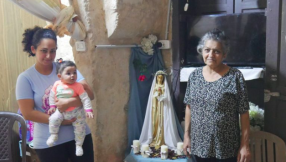Largely dormant for more than 10 years, a law in Algeria which permits the outright persecution of Christians is shaking back into life.
As Africa's largest country, Algeria sprawls south from the Mediterranean into the Sahara desert covering more than 2.3 million squared kilometres, ten times the size of the UK. Of its 40 million citizens, 99 per cent are Muslim and any attempt to convert an Algerian away from Islam is officially illegal.
But even after 2006, when laws controlling non-Islamic worship were introduced, the former French colony tended to continue its largely tolerant attitude towards minorities.
However now, with presidential elections looming next year and the government under pressure from the Islamist MSP opposition party, ministers are using the 12-year-old legislation to instil a new crackdown on churches.
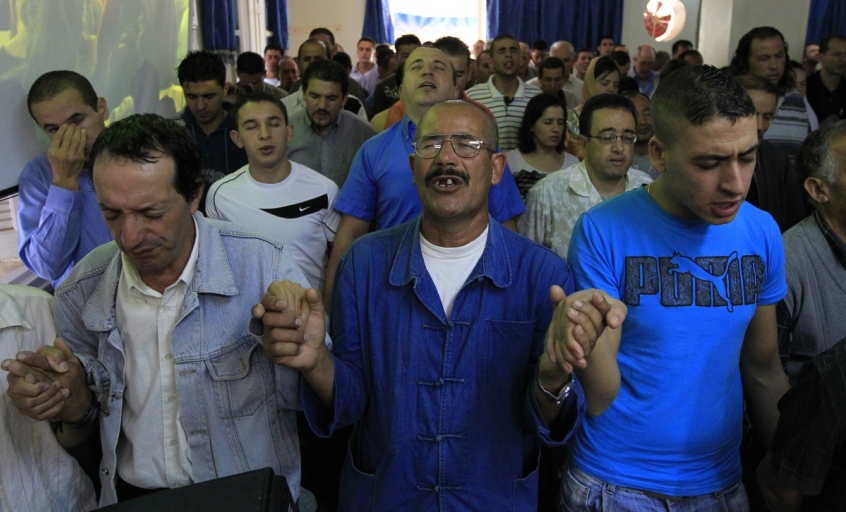
'Since November last year they have been cracking down on the churches,' says Ali Khidri, general secretary of the Bible Society in Algeria. He is one of three pastors, alongside Mustafa Karim and Youssef Ourahmane, who are representing the Association of Protestant Churches of Algeria (L'Eglise Protestante d'Algeéie – EPA) trying to persuade Western governments to intervene.
'Our churches are not officially recognised,' he says in an interview with Christian Today. 'They are illegal. And that is what they want. They just let you hang in the air.'
A joint briefing paper produced by the religious freedom charities Open Doors, Middle East Concern and Christian Solidarity Worldwide (CSW) says: 'Pressures have increased significantly from late 2017, as government inspectors checking compliance with building and safety regulations have also demanded to see permits authorising non-Muslim worship.'
The much criticised 2006 law means non-Islamic worship can only take place in buildings officially sanctioned by the government's National Commission on Religious Worship. Those gathering in 'house churches' could face a prison sentence of between one and three years and a fine of between 20,000 and 60,000 AD ($1,400-$4,200).
The law also imposes a two-to-five year prison term for anyone who 'incites, constrains or uses any seductive means aimed at converting a Muslim to another religion'. A separate offence is laid out for anyone who prints or distributes anything that aims 'to shake the faith of a Muslim'.
Khidri tells of one Catholic priest who was jailed after helping some Muslims. His assistance could 'shake the faith of a Muslim', prosecutors said.
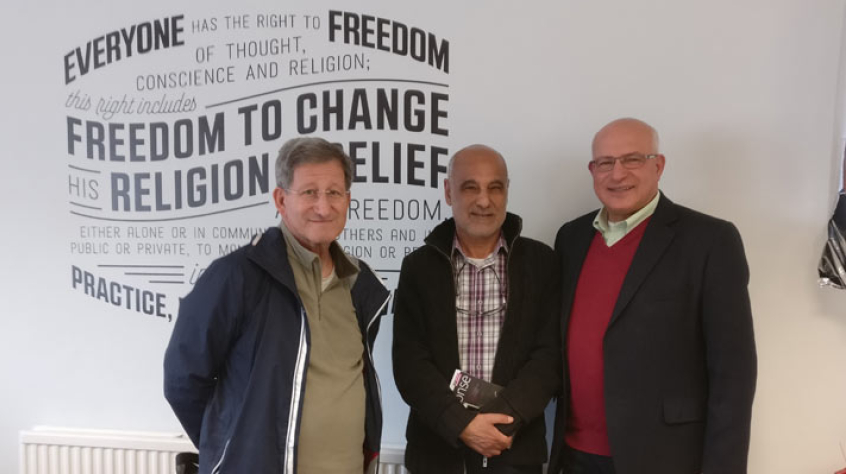
Reliable figures for the number of Christians in Algeria are hard to come by. Anecdotal evidence from several sources suggests a steady and rapid rise in the numbers converting to Christianity. Some studies suggest the number of Algerian Christians is now 350,000. More conservative estimates put the figure at closer to 200,000. What is undeniably true is that Christians have been active and vocal in proselytising their faith despite the law. Church services are filmed from Algeria and broadcast several times a week by the Christian TV station SAT-7.
'We are not just trying to hide and keep going,' says Khidri. 'We are outgoing. That is a big problem for them.'
'Definitely there is incredible growth in the church,' he says. 'They don't want to end up with 2-to-3 million Christians. That would be too much for them to control.'
He adds: 'I think for the Algerian government it is a big source of shame to see tens of thousands of Algerians living in Islam then becoming Christians and very active.
'It is a big source of shame for them. I am sure they have had a lot of pressure from outside [Algeria in the rest of the Middle East and North Africa].'
Against this backdrop of church growth and pressure particularly from neighbouring countries such as Morocco and Tunisia, who have a much stricter enforcement of anti-Christian laws, the portrayal of Christians has shifted from Algeria's traditionally tolerant attitude.
'Over the last two decades the growth in the number of Muslim converts to Christianity has become a widely reported and regularly debated topic in the Algerian media,' a report by CSW says. 'Anti-Christian attitudes are common in media outlets, particularly those linked with Islamist and Arab nationalist movements,' it adds.
'Christians are commonly portrayed as part of a wider western conspiracy against Arabs and Muslims, and as attempting to shake the faith of the nation by using visas and financial incentives to encourage conversions.'
On top of this Algeria's economy, which is dependent on fossil fuel exports, has plummeted with oil and gas revenues halved since 2014.
In this climate the Islamist MSP party is the official opposition to the 81-year-old president Abdelaziz Bouteflika. The veteran leader has been in power since 1999 and in a wheelchair following a stroke in 2013. He has not yet announced whether he will stand for a fifth term in 2019 but his FLN party, who have held power since independence from French colonial rule, have asked him to run.
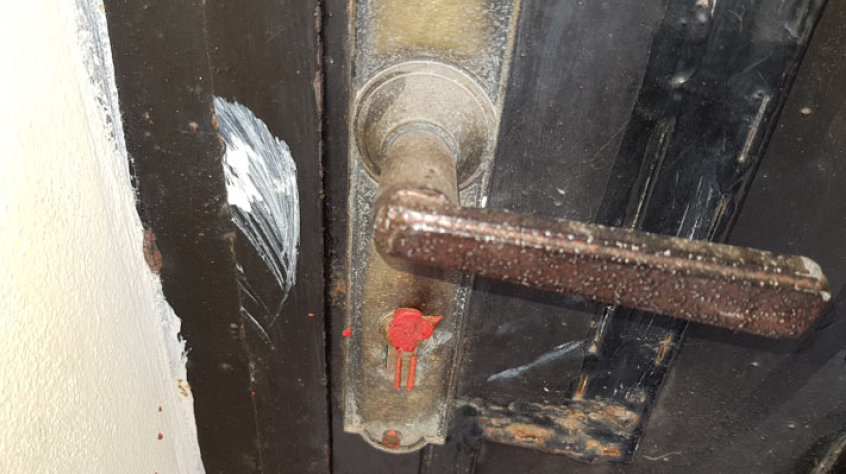
The context of the elections next year is crucial to understand the spike in implementation of the 2006 laws, say the three influential Algerian pastors who visited the UK to highlight their plight.
'The timing is very important,' says Mustafa Karem, a former president of the EPA another of the three pastors trying to convince Western countries to intervene.
All three are near retirement age and say it is the worst persecution they have witnessed in their lifetimes.
'They want to intimate us,' says Khidri. 'They want to show the neighbours, "we are good Muslims too. Don't worry we are dealing with the Christians"'.
He cites an example where 40 police officers turned up to shut down a Christian bookshop owned by one Christian man. This heavy handed approach is to send a deliberate message, says Youssef Ourahmane, another of the three pastors and founder of a large network of churches and Bible schools in Algeria. 'It makes the neighbours believe that the church did something very serious.'
Karem agrees. 'They think they can please the Muslims in the government by closing the churches and stopping some activities,' he tells Christian Today.
Most churches are officially illegal because the 2006 law required them to register with the National Commission on Religious Worship. However that commission never functioned formally, meaning when churches applied for recognition they never received a reply, rendering them illegal. Since 2006, 35 churches have been closed but most continued unhindered.
'It is always there because the law is there,' says Khidri. 'They can bring it up whenever.'
However recently the government has made the law bite.
'They don't want us to exist anymore in Algeria,' says Khidri. 'So they are simply saying to us "you are not legal anymore".
'Their aim as far as we have been trying to read, is they want to close all the churches and just grant a few churches in certain parts with very strict conditions which will allow them to close them very easily if they do not meet those conditions.'
Those conditions typically include no children's work, no overseas preachers and no broadcasting — restrictions deemed unpalatable by Algeria's evangelical churches.
'They are trying to squeeze us,' says Khidri. 'Then they can find a reason to close down the church.'
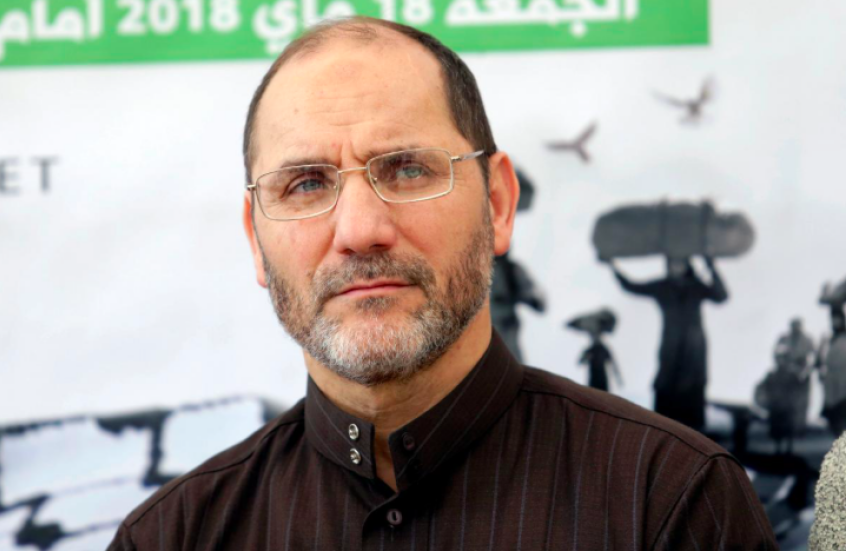
Two Christians have been prosecuted for proselytising in the last week alone. Noureddeine, 30, from the city of Tiaret, was ordered to pay a total of 200,000 Algerian Dinars (€1,000) after police searched his car and found a number of Bibles in Arabic.
In a seperate case Nabil, 28, from the city of Tizi Ouzou, was also stopped and searched returning from a trip abroad. When police found key rings and scarves with Christian engravings he was accused of illegally importing Christian materials. Although a judge dropped an initial prison sentence he was ordered to pay a fine and legal expenses.
'These sentences come amidst a fresh wave of repression initiated by the government that has resulted in the closure of many churches in the country,' CSW said in a statement.
'It is deeply worrying that some of the most senior church leaders in Algeria are describing the current situation for Christians in their country as the worst they have known for a long time,' a spokeswoman for Open Doors adds. 'Together, Middle East Concern, Christian Solidarity Worldwide and Open Doors are calling on the UK to raise these concerns directly with the Algeria government in order to seek an end to this persecution.'
Despite the growing concern Khidri is optimistic the recent trend of increased pressure can be reversed. He points to a front page article in the New York Times in 2006 that halted the law's implementation when it was first introduced.
'The Algerian government is very sensitive to their image not just in the Arab world but also outside,' he says, pointing out the country's reliance on exports. 'I think this is very unique timing because of the presidential elections next year. They will not do anything in the country without pleasing or getting the agreement of the American, French and British governments. They have to work a deal.'
'This is what we are trying to do,' he adds. After starting their tour in America where they met with officials from the Vice President's office, they met British ministers and MPs in Westminster before continuing on to France and to speak to senior EU officials.
'We want to mobilise as many people as possible so there are aware of the situation,' he says.
But with reports of arrests, fines and church closures gathering pace in Algeria, they are running out of time to halt their country's increasing clampdown on its minority Christian population.
You can find out more about persecution in Algeria on Open Doors UK's website.











